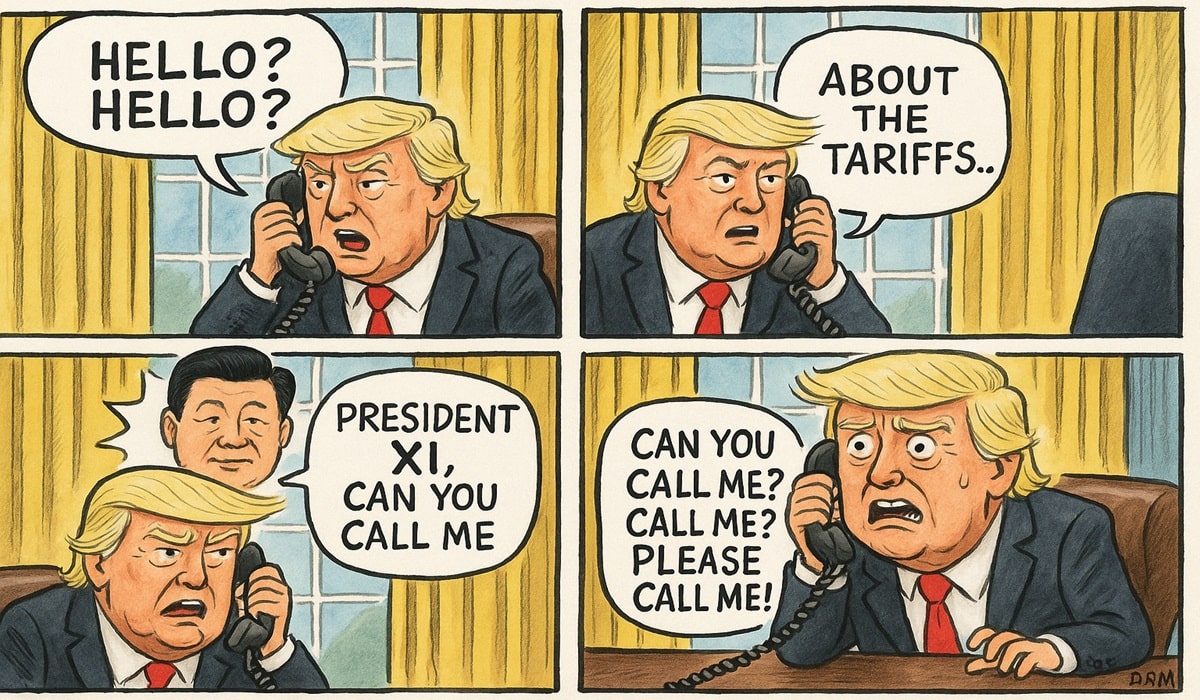Ukraine’s Crossroads: Why a China-Brokered Deal May Be the Best Option
- TDS News
- D.O.C Supplements - Trending News
- China
- East Asia
- March 10, 2025

China may be the missing link in piecing together Ukraine’s future, offering a diplomatic alternative to a prolonged war of attrition. As the United States grows impatient with its financial and military commitments, and as Ukraine faces the reality of its battlefield limitations, a peace deal brokered by Beijing may prove to be the most viable path forward. Chinese Foreign Minister Wang Yi’s recent remarks underscore a consistent position: China does not seek to dictate terms but to facilitate dialogue, and its diplomatic ties with both Ukraine and Russia position it as a rare player capable of bridging divides.
A peace agreement negotiated under China’s guidance would be more favorable to Ukraine than one under U.S. mediation. The recent tensions between Ukrainian President Volodymyr Zelenskyy and U.S. President Donald Trump over military aid make it clear that Washington’s assistance comes with strings attached. The United States has increasingly framed its financial and military support not as a grant, but as a loan to be repaid—potentially through Ukraine’s natural resources. This expectation of repayment, combined with the political fatigue in Washington, suggests that Ukraine may find itself pressured into unfavorable terms if it relies solely on Western negotiations.
China, on the other hand, presents itself as an actor with no direct military involvement in the conflict and a vested interest in global economic stability. While Beijing’s neutrality has been questioned due to its strategic alignment with Moscow, its emphasis on mutual security and economic cooperation offers Ukraine an alternative to Western-led peace efforts that might prioritize geopolitical interests over Ukrainian sovereignty.
Wang Yi’s call for a peace settlement acknowledges the complexity of the crisis, warning against oversimplified solutions that fail to address the underlying security concerns of all parties. His emphasis on mutual and equal security echoes the idea that no nation should benefit at another’s expense—a principle that resonates strongly in a conflict where territorial integrity and self-determination remain central issues. If Beijing can leverage its influence to push Moscow toward a settlement while ensuring Ukraine’s sovereignty is not compromised, China could emerge as the unexpected architect of an enduring peace.
For Ukraine, a Chinese-brokered deal could provide a counterbalance to Western pressure. Instead of facing an economic arrangement where resources are leveraged to satisfy debts to the U.S., Kyiv could negotiate from a position where economic partnerships and reconstruction aid are structured in a way that preserves Ukrainian autonomy. While Beijing’s involvement would not be without its own strategic interests, its commitment to non-interventionist diplomacy allows it to position itself as a stabilizing force rather than an occupying creditor.
With the war now stretching into its fourth year, the urgency for a sustainable resolution has never been greater. The West’s patience is thinning, Russia remains entrenched, and Ukraine faces a critical juncture where prolonged conflict could mean irreversible losses. If there is any hope for a deal that prioritizes Ukraine’s future rather than just its immediate survival, China may be the key to unlocking the last piece of the puzzle.








